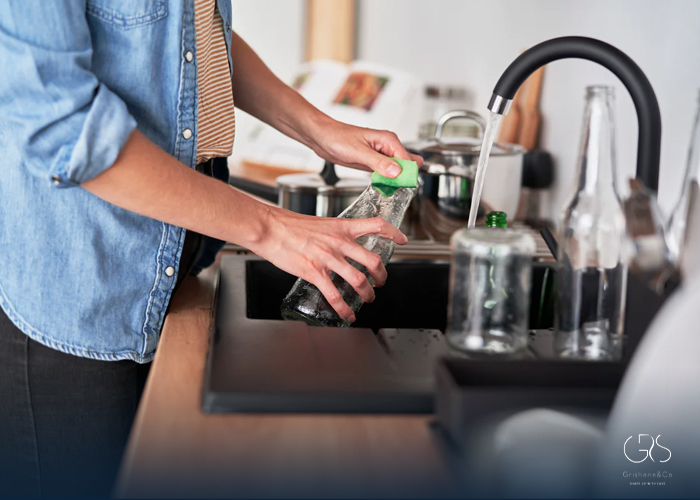In a world where cleanliness has become increasingly vital, it’s concerning that many people overlook a simple yet essential everyday item—their water bottle. Despite the importance of regular cleaning, a surprising number of individuals neglect to cleanse their water bottles adequately. This article aims to shed light on the risks associated with poor water bottle hygiene, explore varying perspectives, and provide guidance on maintaining a healthy and germ-free hydration routine.
The Importance of Washing Water Bottles
Neglected water bottle hygiene can have severe consequences on your health. Bacteria, mold, and other harmful microorganisms can thrive in damp environments, such as water bottles, and may jeopardize your well-being. Failure to wash your water bottle regularly can lead to increased bacterial growth, unpleasant odors, and even serious illnesses.

Eye-Opening Statistics
To comprehend the extent of the issue surrounding water bottle hygiene, let’s delve into some compelling statistics:
- According to a study conducted by Treadmill Reviews, reusable water bottles contain an average of 300,000 colony-forming units (CFUs) of bacteria per square centimeter, which is more bacteria than a typical pet toy or cafeteria tray.
- In a separate study published in the journal Applied and Environmental Microbiology, researchers analyzed water bottles used by school children and discovered that 60% of the bottles contained bacteria that could cause illness and infection.
- Furthermore, a survey by Faucet Face revealed that approximately 52% of Americans refill their water bottles less than once a day, allowing bacteria to multiply.
Diverse Perspectives on Water Bottle Hygiene
While it may seem logical that water bottle hygiene should be a priority, diverse perspectives exist regarding its significance. Let’s explore some common stances on this matter.
Limited Awareness
One perspective is that individuals simply lack awareness about the risks associated with poor water bottle hygiene. Many people may not realize that water bottles can become breeding grounds for harmful bacteria if not cleaned regularly. Improving education and raising awareness about the importance of proper hygiene practices is crucial in overcoming this viewpoint.
Convenience and Negligence
For some, the neglect of washing water bottles may arise from convenience or sheer negligence. Reusable water bottles are often used on-the-go, leading individuals to prioritize convenience over cleanliness. Additionally, busy schedules and a lack of time may contribute to the neglect of washing water bottles thoroughly. Encouraging individuals to incorporate regular cleaning habits into their routines can help combat this perspective.
Eco-Consciousness
On the other hand, some individuals may neglect cleaning their water bottles frequently due to their commitment to sustainability. In an effort to reduce plastic waste, many people have switched to reusable water bottles, inadvertently exposing themselves to the risk of bacterial growth. Discussing alternatives like using eco-friendly cleaning products and emphasizing the importance of striking a balance between sustainability and personal health can be helpful in addressing this viewpoint.
Maintaining a Healthy Hydration Routine
Now that we understand the risks associated with neglected water bottle hygiene and have explored diverse perspectives, it’s essential to establish a hygiene routine for our water bottles. Follow these best practices to ensure your water bottle remains clean and germ-free:
- Wash your water bottle daily with warm soapy water, using a bottle brush for thorough cleaning.
- Keep an eye out for any signs of mold or discoloration, which may require more intensive cleaning or replacing the bottle altogether.
- Opt for stainless steel or BPA-free bottles, as these materials are less likely to harbor bacteria and other contaminants.
- Avoid sharing water bottles with others, as this increases the risk of transmitting germs.
- Consider investing in a self-cleaning water bottle that utilizes UV technology to eliminate bacteria and viruses.
By incorporating these practices, you can maintain a healthy hydration routine while minimizing the risks associated with neglected water bottle hygiene.

Conclusion
Neglecting to wash your water bottle frequently can have dire consequences on your health. Bacteria, mold, and other harmful microorganisms thrive in moist environments, making water bottles a breeding ground for potential illnesses. Understanding the importance of proper water bottle hygiene, recognizing diverse perspectives, and establishing a practical cleaning routine are essential steps towards maintaining a healthy and germ-free hydration habit. By prioritizing cleanliness and implementing the suggested practices, you can safeguard your well-being and enjoy the benefits of a clean and refreshing water bottle.
Sources
- Treadmill Reviews, Your reusable water bottle is likely crawling with bacteria
- Applied and Environmental Microbiology, Unsafe water from bottle dispensers
- Faucet Face, Water survey of American drinking habits reveals some dirty facts











